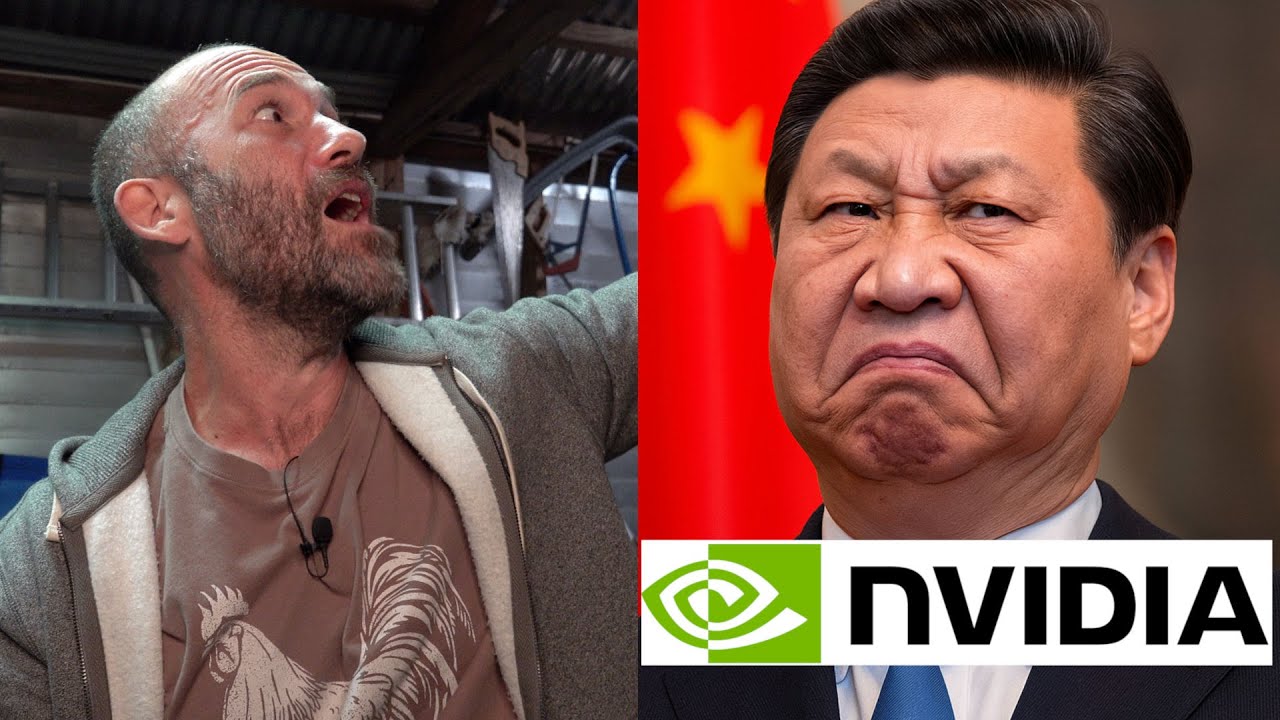Eli the Computer Guy discusses the deep mistrust between the U.S. and China over AI hardware, highlighting how U.S. export restrictions and alleged backdoors in Nvidia’s H20 GPUs complicate global reliance on American technology. He emphasizes that political tensions and security concerns create significant challenges for international companies in trusting and scaling AI infrastructure amid the ongoing U.S.-China tech rivalry.
In this video, Eli the Computer Guy discusses the complex and often contradictory dynamics between the United States and China regarding technology, trust, and artificial intelligence (AI) hardware. He highlights the deep-rooted mistrust fueled by political actions, such as the NSA’s surveillance scandals and export controls on AI technology, which have damaged the global perception of American technology. Eli emphasizes that trust is fundamental in business and technology, and the U.S. government’s aggressive policies and restrictions on AI hardware sales to China undermine that trust, making it difficult for foreign companies to rely on American tech products.
Eli explains the challenges faced by international technology companies when trying to integrate AI hardware from the U.S. due to export restrictions. He points out the risk that a foreign company might be cut off from purchasing additional hardware suddenly if U.S. policies change, which is a significant concern for scaling infrastructure. In contrast, Chinese companies like Huawei can supply AI hardware without such restrictions, offering a more reliable and scalable option for global buyers. This situation creates a dilemma for foreign CTOs and CIOs who must weigh the risks of depending on American technology that could be politically restricted at any time.
The video then focuses on Nvidia’s H20 AI GPUs, which were designed as a limited version of their Blackwell GPUs to comply with U.S. export controls and be sold in China. After initial bans under the Trump administration, Nvidia was allowed to resume sales of these GPUs to China. However, China has recently accused Nvidia of embedding backdoors in the H20 chips, including location tracking and remote shutdown capabilities. These allegations have led to a summons by China’s cyber regulator for Nvidia to explain these security concerns, raising questions about whether the chips truly contain such vulnerabilities or if this is a political move to discourage reliance on U.S. technology.
Eli critically examines the implications of these accusations, noting that U.S. lawmakers have openly discussed embedding location tracking in export-controlled hardware as a security measure. This raises a broader question about whether technology buyers worldwide can trust American AI hardware if it potentially includes spying or kill-switch features mandated by U.S. policy. He suggests that China’s claims might be partly based on real concerns amplified by political rhetoric, or they could be a strategic effort to promote domestic AI chip development and reduce dependence on foreign technology.
In conclusion, Eli reflects on the broader consequences of the U.S.-China tech rivalry, emphasizing that the current policies and political posturing create chaos and mistrust rather than clear, beneficial outcomes. He urges viewers to consider the practical risks of relying on AI hardware that might be subject to geopolitical control and surveillance. The video ends with an invitation to engage in discussion and upcoming fireside chats on AI integration, highlighting the ongoing importance of understanding these issues in the tech community.
